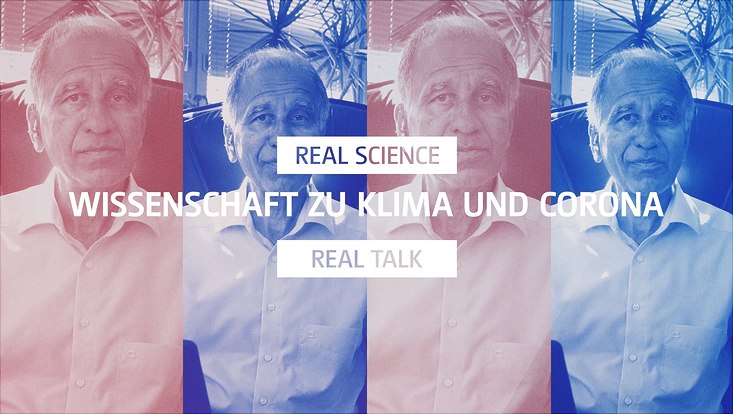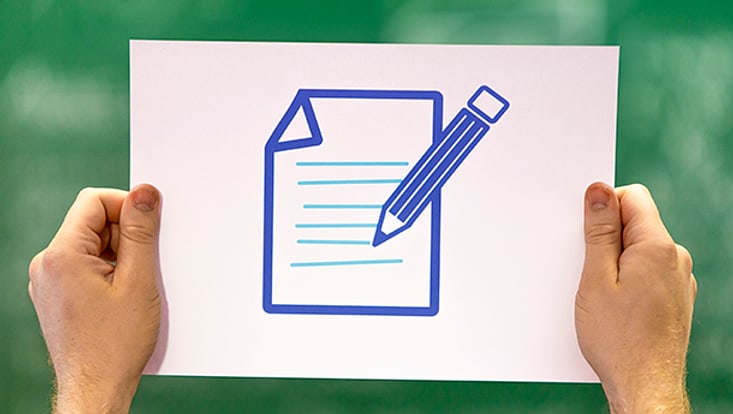Society Research
DKK Video Series "Real Science, Real Talk" launchedScience about Corona and Climate
12 October 2020, by CSS

Photo: DKK
The corona pandemic has suddenly changed our everyday life. For climate research, however, the lockdown also made unexpected experiments possible. Fewer emissions, changed mobility and political crisis management - all opportunities to collect and evaluate new data. In a new video series, 18 experts from the German Climate Consortium (DKK) reflect their very different findings in a flash. The first contribution by Professor Mojib Latif is published today.
Professor Mojib Latif, climate researcher and DKK Chairman of the Board, talks in his contribution about what we can learn from the Corona crisis to overcome the climate crisis: "Only together can the climate crisis be solved by all countries. Especially politicians who deny climate change - such as Trump in America or Bolsonaro in Brazil - have to deal with extremely high infection rates and an unbelievable number of deaths". The Corona crisis shows: Science can deliver new knowledge relatively quickly and then make this knowledge safer step by step. The decisive factor is whether politics and society want to use it for their orientation.
Real Science, Real Talk
Science about Climate and Corona
Short-time work, blue skies without contrails, video conferencing, bicycle boom - the Corona pandemic has radically broken our routines, politicians have taken comprehensive measures, the economy and each and every individual is struggling with the consequences. What do these changes mean for climate change and climate policy? This is what researchers at the member institutions of the German Climate Consortium (DKK) are investigating. 18 of them report their observations and assessments in the new video series "Real Science, Real Talk - Science on Climate and Corona".
The Corona crisis is a great experiment for the atmosphere and our society and the lockdown is a tool to gain new insights: Atmosphere researchers measure whether and why the air in the Rhineland or in China, for example, has improved. They explain how much CO2 emissions have fallen and why the CO2 content of the atmosphere continues to rise despite this. Social scientists and humanities scholars are using the pandemic to study the traffic turnaround in real experiments, to observe our society in a crisis situation and to improve science communication. Political and economic experts emphasize the importance of combining economic aid with climate protection and ambitiously driving forward the European Green Deal. One thing is clear: the short window of opportunity to keep the climate crisis manageable should be used.


